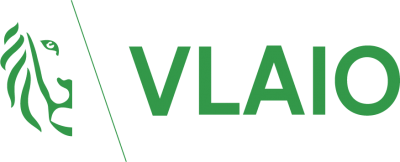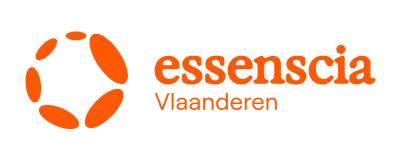Topics
We organise our actions in six thematic & strategic agendas:
Strategic Agendas:
Bio-economy
Circular Construction
Chemicals/Plastics
Manufacturing Industry
Food Chain
Water Cycles
Seven leverages provide additional support:
Leverage effects:
Lever Policy Instruments
Lever Circular Procurement
Lever Communication
Lever Innovation & Entrepreneurship
Lever Financing
Lever Jobs & Skills
Lever Research
What, why and how?
Why are we pursuing a circular economy?
Future visions 2050
How do we see our circular future?
About our management
Who steers what at Flanders Circular?
Living Labs on Fibre
A more circular use of textiles
Kringwinkel, Oxfam and World Mission Aid aim to make textiles more circular. The Living Lab 'textile undercurrents' is investigating whether the partners can take on some of the recycling and provide them with a structural cooperation model.
Kringwinkel, Oxfam and World Mission Aid process tonnes of textiles every year. Although companies strive to maximise local recycling, a growing proportion of textiles unfortunately end up in landfills. The reason can be found in the declining product quality within the fast-fashion industry that dominates the market.
Together with a range of circular partners, Kringwinkel, Oxfam and World Mission Aid are taking up the challenge of extracting as much high-quality recycling as possible from the non-reusable streams. In doing so, the partnership is exploring whether it can itself take on part of that processing, such as (partial) dismantling or initial pre-sorting for recycling. In other words, they are providing a focus on the transparent and sustainable processing of consumer textile undercurrents, providing the opportunity for upscaling.
At the same time, the Circle Shop, Oxfam and World Mission Aid are enabling a structural cooperation model for social profit collectors and (circular) textile processors. They develop the best possible partnership logistics, but also provide a sustainable financial plan for setting up common infrastructure for sorting by textile fibre type. Together with a range of partners, they are thus betting on a high-performance sorting centre to reuse as many raw materials as possible.
HERW!N
Partners Kringwinkel VITeS, Kringwinkel WEB, Wereld-Missiehulp, OXFAM SOLIDARITE - OXFAM SOLIDARITEIT, Kringwinkel Antwerpen, Kringwinkel Zuiderkempen, VITO, Kringwinkel Ateljee, De Kringloopwinkel Deltagroep, Ariadne Innovation, HNST Studio, Centexbel - VKC
Sectors
Themes
Organisations

















